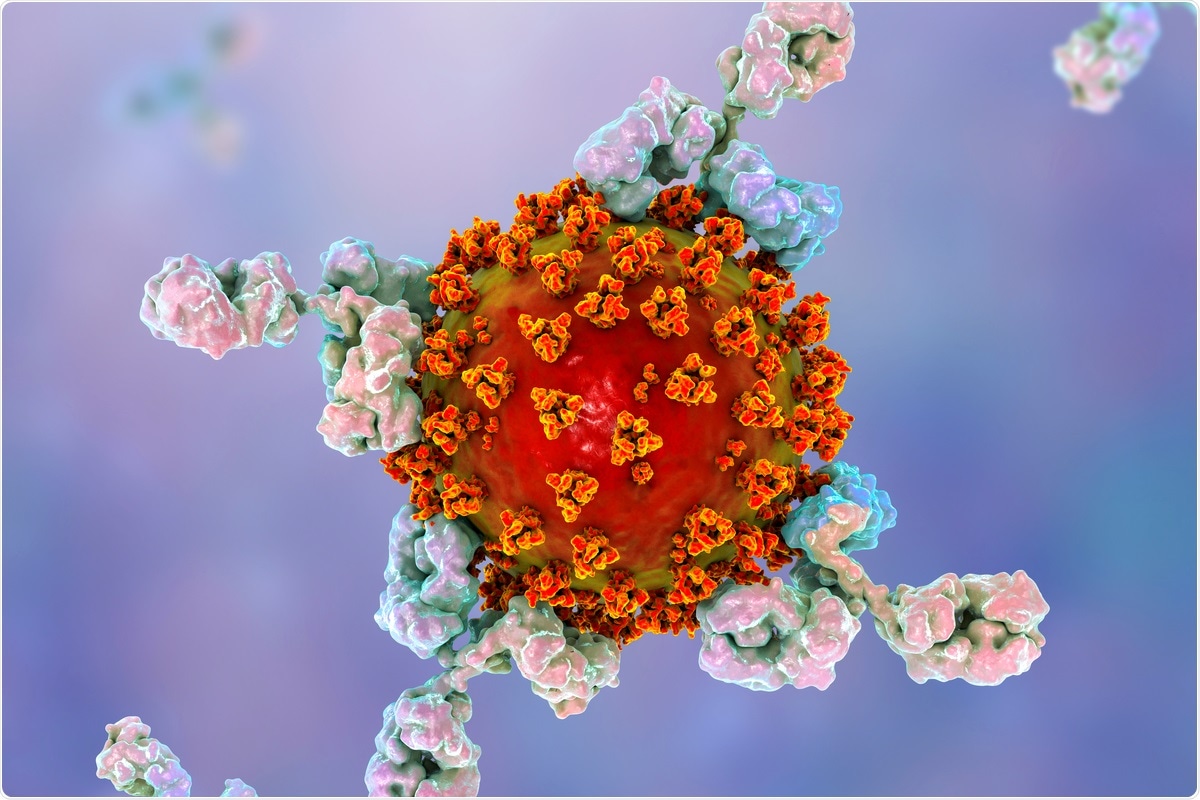The ongoing coronavirus disease 2019 (COVID-19) pandemic has infected around 229 million individuals and claimed more than 4.7 million lives worldwide. This pandemic is caused by severe acute respiratory syndrome coronavirus 2 (SARS-CoV-2), which belongs to the family Coronaviridae and genus betacoronavirus. This pandemic has significantly affected global health and the global economy massively. Hence, it is imperative to understand the immune correlates of protection against COVID-19 infection to design effective mitigation strategies and develop effective therapeutics and vaccines.
 Study: SARS-CoV-2 neutralizing antibodies decline after one year and patients with severe COVID-19 pneumonia display a unique cytokine profile. Image Credit: Kateryna Kon/ Shutterstock
Study: SARS-CoV-2 neutralizing antibodies decline after one year and patients with severe COVID-19 pneumonia display a unique cytokine profile. Image Credit: Kateryna Kon/ Shutterstock
Background
SARS-CoV-2 infection can be both symptomatic and asymptomatic. As for symptomatic infection, it ranges from mild to severe and may also result in death. In severe COVID-19 infection, patients develop pulmonary inflammation and suffer damage in the alveolar cells causing acute respiratory distress syndrome (ARDS). In these conditions, patients require invasive mechanical ventilation.
The mechanisms behind the manifestation of acute SARS-CoV-2 infection are still not fully understood. Although previous studies related to epidemiology revealed individuals who belong to older age groups, male, comorbidities, obese are associated with enhanced risk of severe COVID-19 infection that may lead to death. Also, individuals belonging to the BAME (Black, Asian, and Minority Ethnic) community were more susceptible to severe SARS-CoV-2 illness.
Although many studies have explored the trajectory of SARS-CoV-2 neutralizing antibodies (NAbs) production using applications such as machine learning algorithms, the kinetics, and longevity of NAb titers developed in response to viral infection, could not be predicted accurately in the early phase of the infection.
Neutralizing antibodies and COVID-19
One of the important immune correlates of protection against COVID-19 infection is NAbs. Although prior studies associated with mouse and non-human primate models had revealed a positive result for the passive transfer of NAbs against SARS-CoV-2, clinical trials exhibited different reports. In the clinical trials, researchers revealed partial success in treating COVID-19 patients with high-titer convalescent plasma.
Scientists have correlated NAb titers with protection against SARS-CoV-2 reinfection. Therefore, a thorough understanding of the stability and durability of anti-SARS-CoV-2 NAbs would help predict how long an individual is protected from the infection. Several studies have indicated that NAb titers persist for around five to eight months. However, reports on the persistence of NAbs beyond eight months are limited. Another limitation associated with most of these studies is that they did not use live-virus neutralization assays, which are accurate but time-consuming.
Cytokine Networks in COVID-19
Previous studies have reported the existence of an inverse correlation between COVID-19 viral load and severity. In some patients, researchers found that the clinical deterioration was immune-mediated and not due to an increase in viral replication. Individuals severely infected with SARS-CoV-2 may experience cytokine-release syndrome (CRS), or “cytokine storm.” This event may lead to systemic hyper inflammation causing ARDS, multiple-organ failure, secondary hemophagocytic lymphohistiocytosis (sHLH), pulmonary edema, and death. Scientists have developed treatments based on adjunctive cytokine-targeted therapy, e.g., FDA-approved monoclonal antibody IL-6 receptor antagonist tocilizumab. These treatment strategies suggest that specific inflammatory networks could help mitigate various diseases.
A new study
A new study published in the International Journal of Infectious Diseases has focused on antibody levels and cytokine profiles of COVID-19 patients with mild symptoms, pneumonia, and severe pneumonia. Researchers conducted longitudinal studies to determine the levels of NAbs in hospitalized COVID-19 patients using live-virus neutralization assays. They also produced inflammatory cytokine profiles in these groups. This study was conducted for 12 months after the onset of symptoms.
The researchers assessed patients with pneumonia and severe pneumonia separately to distinguish between the immune-mediated pathologies that govern the various classifications of SARS-CoV-2-induced pneumonia. The authors of this study revealed that the spike in the NAb titers correlates with disease severity. They observed a decline in the NAb titers for 12 months irrespective of the degree of the severity of the disease. The reduction of NAb titers over time, regardless of COVID-19 severity, maybe because of transient plasmablast expansion, which decays less than ten days after the onset of the COVID-19 symptoms.
In the multiplex analyses, scientists found a significant increase in the levels of IP-10, IL-6, IL7, and VEGF-α in patients suffering from severe pneumonia. However, such increased levels were not observed among patients with mild pneumonia or mild COVID-19 symptoms. Interestingly, researchers found distinctly different cytokine networks in different COVID-19 severity groups. Therefore, these interleukins may serve as key prognostic markers of disease severity.
Limitations
Researchers stated that this study only provided a snapshot of the cytokine factors associated with the early phase of COVID-19. However, it failed to capture the spatiotemporal dynamics of these mediator expressions. A larger cohort is essential to develop a complete framework of inflammatory networks linked with the different stages of infection.
Journal reference:
- Vacharathit, V. et al. (2021) "SARS-CoV-2 neutralizing antibodies decline after one year and patients with severe COVID-19 pneumonia display a unique cytokine profile", International Journal of Infectious Diseases. doi: 10.1016/j.ijid.2021.09.021.